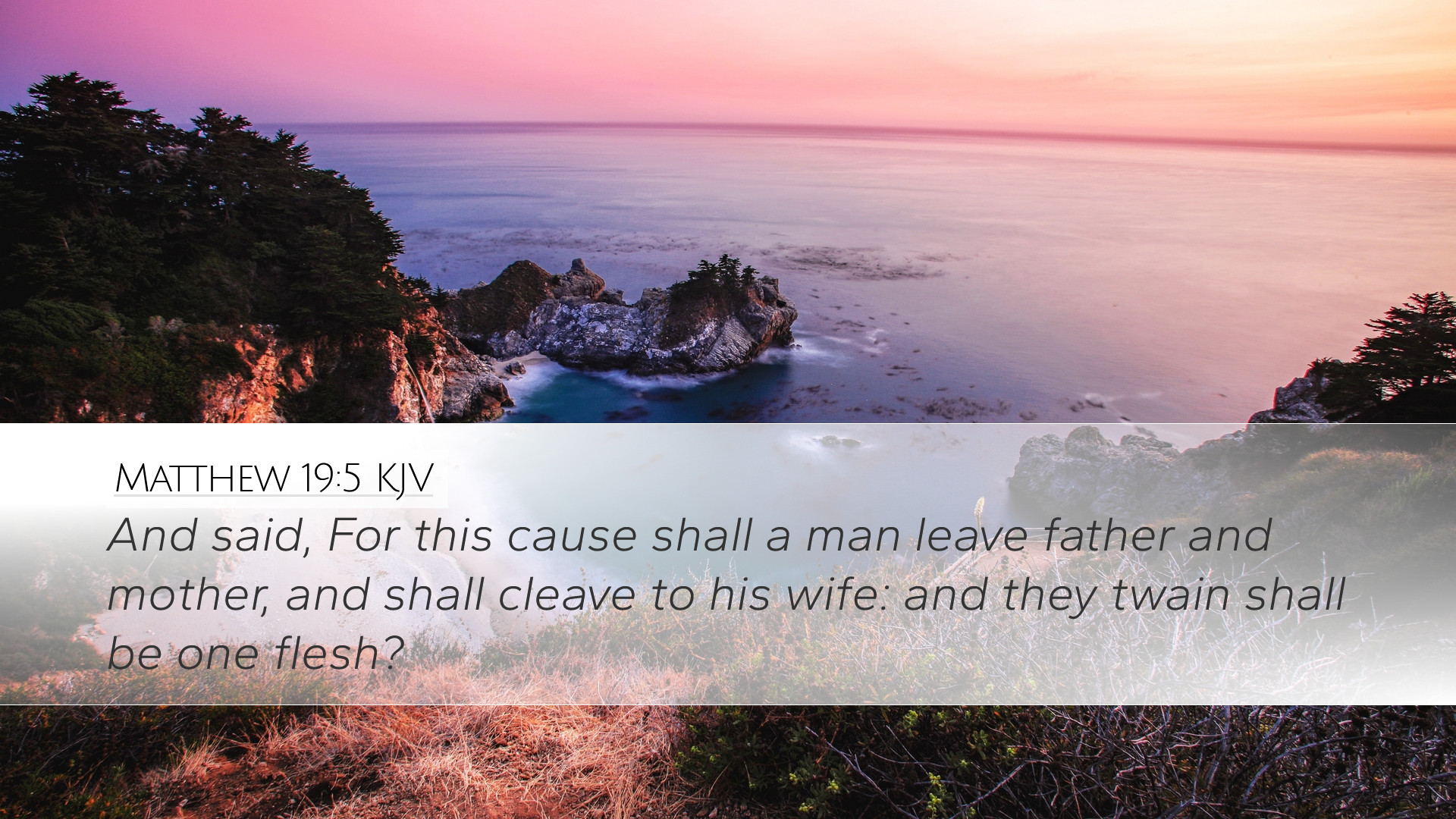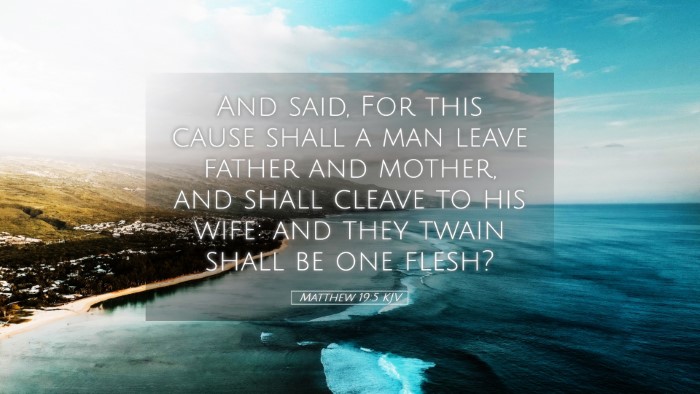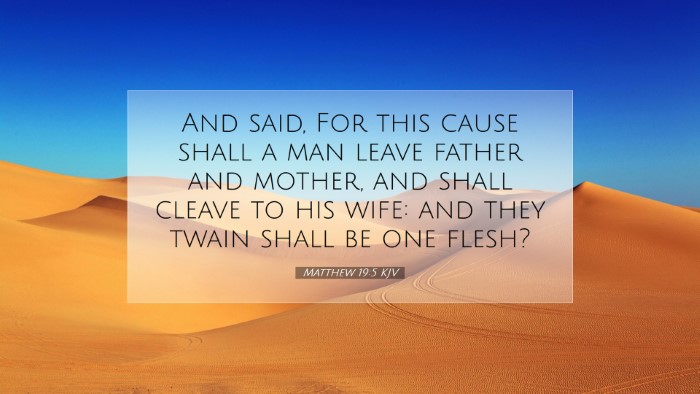Commentary on Matthew 19:5
Bible Verse: "And said, For this cause shall a man leave father and mother, and shall cleave to his wife: and they twain shall be one flesh."
Introduction
Matthew 19:5 addresses the profound mystery and divine institution of marriage as ordained by God. The verse quotes Genesis 2:24, highlighting the foundational principles of marital relationships. This commentary combines insights from respected public domain scholars, providing a comprehensive understanding of this scripture.
Divine Ordination of Marriage
According to Matthew Henry, this verse underscores that marriage is a divine ordinance instituted by God from the beginning. The phrase, "For this cause" indicates the purpose behind marriage, emphasizing that it is intended for companionship, mutual support, and fulfillment of God's intention for humanity.
Albert Barnes further elaborates, explaining that the leaving of parents signifies the establishment of an independent household, which is crucial for forming a new family unit. The biblical model implies a shift in loyalty and focus from one’s parents to one’s spouse, portraying marriage as a covenant that establishes a new primary relationship.
Adam Clarke also adds that the commitment involved in marriage promotes unity and stability, and this unity is symbolized by the phrase "one flesh." This physical and spiritual melding reflects an inseparable bond that God intends for the married couple.
The Significance of "Leaving" and "Cleave"
The command to "leave" signifies a necessary detachment from prior family ties to fully embrace the marital relationship. Matthew Henry comments that this leaving is not merely a physical act but a profound emotional transition that acknowledges the new priorities in one’s life.
- Emotional Priority: The husband and wife must prioritize each other above all others in their emotional and relational commitments.
- Social Implications: This act of leaving serves to reinforce the importance of the marital bond over familial and social connections, demonstrating the elevated status of the marriage covenant.
Albert Barnes points out that "cleave" suggests a deliberate and active commitment to the marital relationship, implying both loyalty and tenacity. The term embodies a sense of joining together that is characterized by love and dedication.
Theological Insights
From a theological standpoint, the implications of this verse extend into the nature of God’s relationship with humanity. Adam Clarke makes an insightful connection, suggesting that just as a husband and wife become one in marriage, so too does God seek a close, personal relationship with His people. This parallel portrays God as a loving groom, which is an enduring theme throughout scripture.
Moreover, Matthew Henry emphasizes this connection serves as a reflection of Christ and the Church, revealing that the intimacy and unity experienced in marriage can also be seen as a sacred model for the relationship between Christ and His body, the Church.
Practical Application for Today's Believers
This passage holds significant lessons for contemporary believers regarding the nature and responsibilities of marriage. Albert Barnes highlights the critical need for mutual respect, love, and fidelity. A successful marriage is not merely based on emotional sentiments but on active commitment and devotion to one another.
- Emphasizing Commitment: Couples are encouraged to view their marriage as a lifelong commitment, akin to Christ’s unwavering commitment to His church.
- Promoting Unity: Pastors and leaders must help couples understand the depth of "one flesh," advocating for unity in both physical and spiritual realms.
Conclusion
The profound truths encapsulated in Matthew 19:5 serve as a guiding principle for all who engage in the covenant of marriage. As elucidated by Matthew Henry, Albert Barnes, and Adam Clarke, this verse brings forth the divine nature of marital unity and the responsibilities it entails. The insights drawn from this passage affirm that marriage is both a gift and a responsibility, a representation of God’s design for companionship and love.
In a world where the institution of marriage is often challenged, it is imperative for pastors, students, theologians, and scholars to uphold these biblical principles, fostering environments where healthy, God-honoring marriages can flourish.


